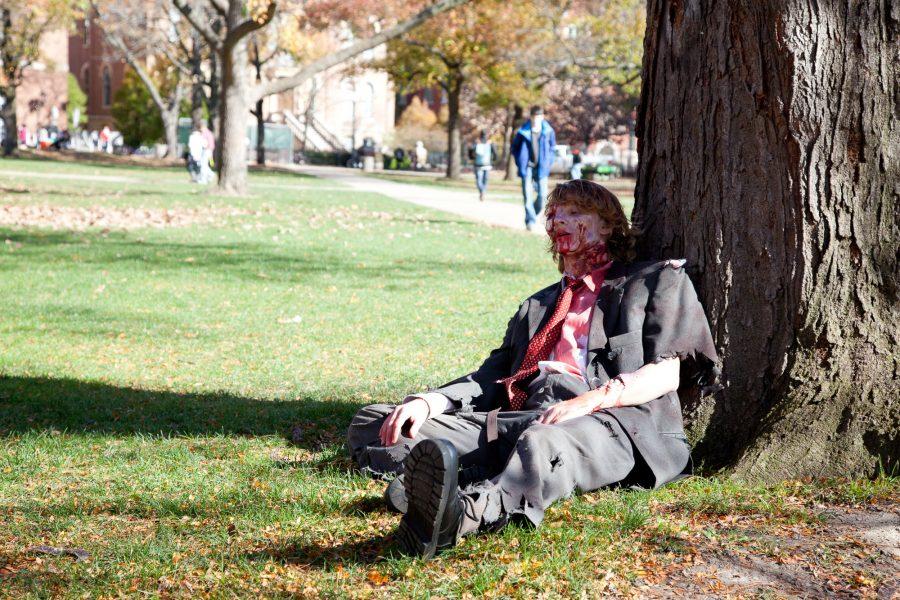Cultural costumes aren’t costumes at all
Oct 25, 2016

Halloween is one day of the year where you can dress up as whomever or whatever you want, and it is deemed normal.
People, especially students, like to get creative with their celebrations. However, this also means that sometimes costumes may go too far.
Every year you see the same old costumes: cats, vampires, witches, etc. These are some of the basic or traditional ones, vamped up of course. But every year you’ll seem some original ones as well, which can often be themed or reflect recent pop culture, such as Donald Trump or Harley Quinn.
While costumes can be funny or creative, sometimes they can go horribly wrong. This occurs when the costumes become borderline offensive — which is a line you don’t want to cross.
There is no quicker way to shut down a Halloween party than to walk in with an offensive costume. Or even worse, you walk in and have your picture posted on social media which will only end up with you upsetting someone and looking like you have poor taste.
Get The Daily Illini in your inbox!
One way that people unintentionally do this is by wearing a cultural costume. You should not treat someone’s life and culture like a Halloween costume. It’s classless and can be very offensive.
A common example of this is being a “Native American” for Halloween and wearing some version of an inappropriate fringe dress with a plastic, feathered headdress.
There is literally an entire section in Party City filled with feathers and arrows meant to serve as accessories to this completely ridiculous costume. What people don’t realize is that although it may seem cute, this represents someone’s entire history. Not only is it being mocked with a costume, but it is often a completely inaccurate depiction of this culture.
These costumes often reflect stereotypes or are oversexualized and depict the people of individual cultures in a vulgar way. To people who are a part of those cultures, it can be hurtful and offensive.
There are many ways to have fun with your costume, but stereotyping and inaccurately depicting someone’s culture in an offensive manner is not one of them.
Whether it’s intentional or not, it is still offensive: which is why students need to think about their costumes before they head out for the night. This can go for exchanges as well. Many of them are costumed or themed events and these can be an area of conflict for students surprisingly often.
Just last spring, members of both a fraternity and a sorority had a social exchange where they wore some costumes that offended students on campus. Neither group meant any offense, but it sparked a controversy and activists fought back.
Students were seen depicting Native Americans, Arabs and Hispanic people, with others dressed as TSA agents. Not only did students wear these costumes to the event, but they took a group photo which was posted online which made it public and sparked the issue.
Whether it’s intentional or not, the damage was still done and people reacted justifiably. It is much better to be safe than sorry this Halloween season, so steer clear of cultural appropriation.
There is always room for some tongue-in-cheek costumes, but don’t cross the line by disrespecting a group of people.
Watch out with what you post online, because it can come back to haunt you.
Andrea is a freshman in Media.






